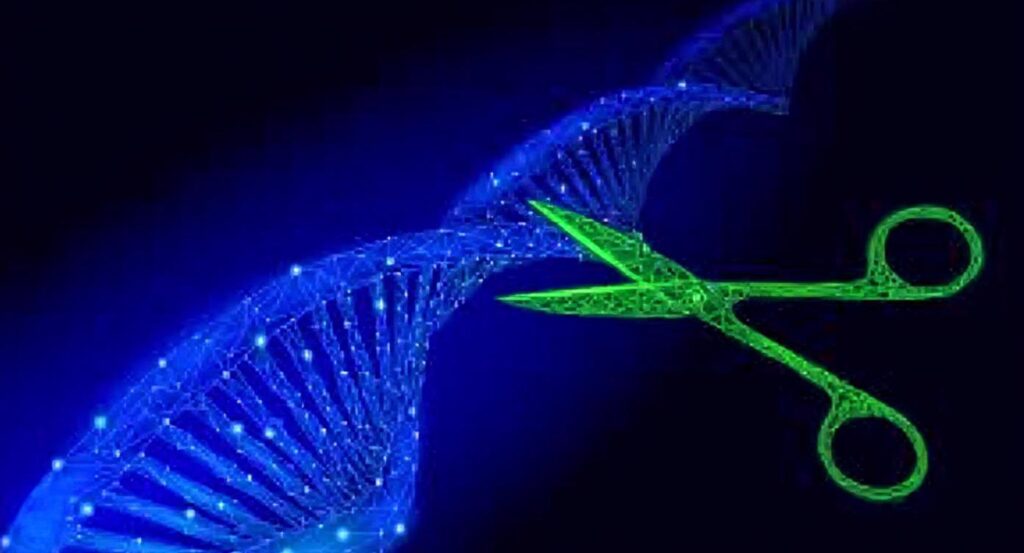Use of molecular scissors to improve CAR-T cell therapy

Las tijeras moleculares CRISPR permiten rediseñar células CAR-T para combatir con mayor eficacia el cáncer resistente.
CAR-T cell therapy is one of the most promising innovations in the fight against cancer. However, despite its success in certain patients, others do not respond adequately to this treatment. Researchers at the Mayo Clinic, led by Dr. Saad Kenderian, have taken an important step by discovering how to improve the efficacy of CAR-T cells through the use of molecular scissors and genetic editing. This breakthrough opens new possibilities for patients who do not experience positive results with current therapies.
CAR-T cell therapy involves modifying a patient’s immune T cells in a laboratory so they can better identify and destroy cancer cells. Although this immunotherapy has revolutionized the treatment of hematologic cancers, such as certain lymphomas and leukemias, the results are not always positive. Approximately only one-third of patients experience complete remissions.
One of the main problems is CAR-T cell exhaustion. This phenomenon occurs when modified T cells lose their ability to multiply and fight cancer, which can result in relapse within a year of treatment. The research team led by Dr. Kenderian focused on understanding why some CAR-T cells lose effectiveness in certain patients. The study revealed a key factor: the IL-4 protein.
The IL-4 protein and its impact on CAR-T cells
The interleukin-4 (IL-4) protein plays a crucial role in the immune system by regulating inflammation and the body’s immune response. At moderate levels, IL-4 can stimulate an immune response that helps attack tumor cells. However, when CAR-T cells produce excessive IL-4, this surplus can cause cellular exhaustion, compromising the therapy’s effectiveness. This discovery was essential, as researchers now understood that overproduction of this protein was weakening the CAR-T cells’ ability to effectively combat cancer.
The finding that overstimulated CAR-T cells produce too much IL-4 opened the door to new strategies. One proposed solution was to modify or eliminate IL-4 from the CAR-T cells, which could restore their potency and prolong their ability to attack cancer.
The role of CRISPR molecular scissors in the solution
One of the key tools used by the Mayo Clinic team was CRISPR gene-editing technology, known as “molecular scissors.” This tool allows for precise cutting and modification of an organism’s genes. In this case, CRISPR was used to eliminate or modify the IL-4 protein causing dysfunction in CAR-T cells. The results were impressive: by removing IL-4 from the modified cells, researchers observed a significant improvement in the CAR-T cells’ ability to recognize and destroy cancer cells.
In addition to gene editing, the team also tested monoclonal antibodies to block IL-4. This approach also resulted in the recharging of CAR-T cells, restoring their ability to attack cancer more effectively. The combination of these technologies opens new avenues to optimize CAR-T cell therapy, potentially benefiting many patients who do not respond adequately to current treatments.
Perspectives for CAR-T cell cancer treatment
Although the results of this research are promising, further work is needed to validate these findings in human clinical trials. Combining genetic editing with the inhibition of specific proteins such as IL-4 could be the key to improving the longevity and effectiveness of CAR-T cell therapy, offering new hope to cancer patients who have not had success with conventional treatments.
This advancement has the potential to transform CAR-T cell therapy, not only by improving response rates but also by extending remission in those patients who previously did not experience lasting benefits. The study also highlights the importance of using gene-editing tools like CRISPR in personalized medicine, which could provide a solid foundation for developing more effective treatments in the near future.
Conclusion: the future of CAR-T therapy with molecular scissors
The Mayo Clinic team’s research represents a significant advance in the fight against cancer. Genetically modifying CAR-T cells through the use of CRISPR and antibodies to eliminate the IL-4 protein opens new possibilities for enhancing the effectiveness of this immunotherapy. These results could be key to offering better personalized treatments for cancer patients, especially those who have experienced failures with previous therapies.
Although more studies and clinical trials are still needed to confirm these results, the work done by Dr. Saad Kenderian and his team could mark a major milestone in cancer treatment, offering many patients new options to face this devastating disease. With the combination of cutting-edge technology and advances in molecular biology, CAR-T cell therapy could evolve into an even more powerful tool in the fight against cancer.








